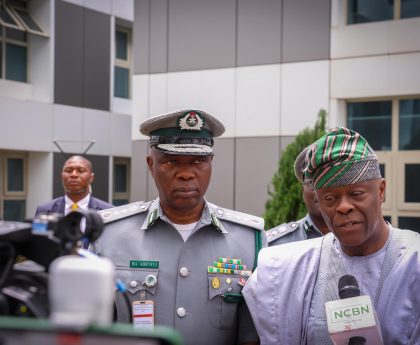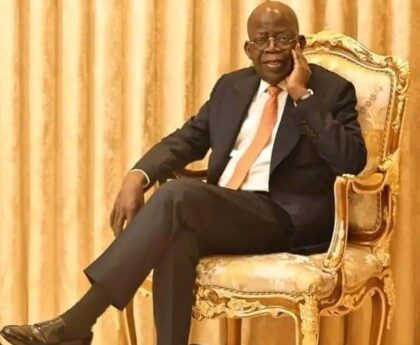As a measure to decongest prisons across Lagos, the Chief Judge of the State, Justice Kazeem Alogba, has released 30 inmates and approved their re-integration into society, after turning new leaves.
The 30 inmates granted freedom to leave the correctional centres were among the 40 inmates listed for the amnesty programme by the prison services.
Alogba pardoned the inmates during an open court session presided over by the Chief Judge within the premises of Ikeja Magistrates’ Court in Ogba.
During the session on Thursday, he ordered that six of the inmates be returned to prison while the remaining four names had errors.
Those granted freedom included four juveniles who were brought from a Foster Home, Borstal Training Institution, Adigbe in Abeokuta, Ogun State capital.
Others were released from Ikoyi and Kirikiri Correctional Centre by the Chief Judge after they were found to have imbibed good characters while in the prison custody.
Some of the inmates were said to have been in correctional facilities since 2013 before they were granted freedom during the amnesty program in the state.
The chief judge, while releasing the inmates, said that the exercise was in line with the efforts by the Federal Government to decongest custodial centers as stipulated in Sections 1(1) of the Criminal Justice Release from Custody Act, Cap C40, Laws of the Federation of Nigeria 2007 and 377 (c) of the Administration of Criminal Justice (Amendment) Law 2021.
According to him, the amnesty is guided by relevant laws upon fulfillment of requisites, before it could be embarked upon.
Alogba said the exercise was related to people who had stayed much longer than they would have stayed upon conviction and those whose trials had been stalled.
He explained that the overstretch awaiting trial inmates at the Correctional Center was a result of systemic failure as cases had not been going promptly not to as failure of the judiciary but due to ancillary factors.
“Cases are not going on in courts not because the magistrates or judges are not upright in their duties but failure as a result of hitches in the course of prosecuting offenders,” he added.
The chief judge also commended the committee that looked into the case of those released for doing a thorough job.





